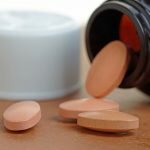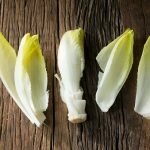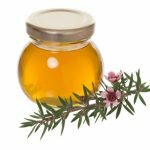Alternative Natural Treatments For Alzheimer’s Sufferers
George is a 72-year-old retired decorator from Lincolnshire, who lives with his wife Pat. Both their lives were turned upside down two years ago, when he was diagnosed with Alzheimer’s disease. He is constantly forgetful and confused, finds it difficult to learn and understand new tasks, and his communication skills are rapidly getting worse.
Pat is his main full-time carer who is fortunately still in relatively good health and able to look after him for the time being. She says: ‘When the doctor told us about the diagnosis my world fell apart. It is so painful to see the one you love disintegrate slowly in front of your eyes and feel unable to offer him any real help. Fortunately, our doctor is quite open-minded and she was able to give us very good advice on how to make matters a bit better for him’.
As part of George’s treatment programme his doctor recommended vitamin E, coenzyme Q10, carnosine and ginkgo biloba supplements – all of which have been shown to help slow down the progression of the disease. Pat is convinced that these have helped make remembering things a little easier for him.
According to the Alzheimer’s Disease Society there are over 700,000 people who suffer from Alzheimer’s disease in the UK. The condition causes severe memory problems, and affects the ability to understand, communicate and reason effectively. It is important to be aware that Alzheimer’s disease is a progressive disease and while certain treatments can help there is presently no cure for the condition. Fortunately, scientists are constantly carrying out research in this area and recent research findings have revealed how certain natural remedies can significantly help in the fight against the disease.
Conventional drugs can cause mental confusion
Conventional treatments are only partially effective in the fight against Alzheimer’s disease and, as mentioned already, do not cure the disease. Nevertheless, drugs such as Donepezil (Aricept) and Rivastigmine (Exelon) may be effective in helping to slow down the progression of the disease.
However, these drugs can all cause harmful side effects including tiredness, loss of sleep, dizziness, abdominal pain and, ironically, mental confusion. They work by increasing the concentration of the memory chemical acetylcholine in the brain, which Alzheimer’s disease patients are often found to be deficient in.
Huperzine A outperforms an orthodox drug used to treat memory problems
A herb that has recently proved its worth in fighting memory loss is the Chinese moss Huperzia, the active extract of which is called Huperzine A. It has been found to prevent the breakdown of acetylcholine in the brain.
A double-blind trial found that Huperzine A – at a dosage amount of 100-150mcg capsules two or three times a day, taken over a period of four to six weeks – was more effective for improving memory loss than the drug piracetam.
This is good news, as piracetam is an anticonvulsant drug that is also prescribed to facilitate mental processes but which, paradoxically, can also cause seizures. The recommended dosage is one 50mcg Huperzine A capsule taken in the morning and another 50mcg tablet taken in the evening.
Following a low-carb diet helps protect your brain cells
In addition to low levels of acetylcholine, the majority of Alzheimer’s disease sufferers are also found to have high levels of damaged proteins in their brains. Healthy brain cells contain active proteins that help facilitate and maintain processes such as memory, learning and cognition. With age, these proteins become increasingly damaged by sugar molecules, which attach themselves onto the proteins inside your cells, causing an abnormal build-up of waste material called ‘amyloid-beta’. This biological rubbish clogs up the cells, disrupting memory processes and resulting in other symptoms associated with dementia.
Researchers at the Interdisciplinary Centre for Clinical Research in Leipzig, Germany, have reported that, while the presence of amyloid-beta can have a detrimental effect on the brain, we possess several defences against it. For example, antioxidants (such as glutathione), which are naturally produced by your brain, are normally able to counteract the damage caused by amyloid-beta.
The problem is that, with age, the production of these natural antioxidants falls dramatically, leaving us completely unprotected against amyloid-beta. To prevent this the German scientists recommended taking lipoic acid (200mg daily), vitamin E (400iu a day) and flavonoids (from dark coloured fruits such as berries) – all of which help strengthen your defences against amyloid-beta.
A particular nutrient that prevents the formation of amyloid-beta is the amino acid carnosine (take one 50mg capsule two to three times a day). Carnosine protects the proteins inside your brain cells and prevents sugar molecules from destroying them, which as a result reduces the production of amyloid-beta. A diet low in sugar and carbohydrates, both of which cause your blood sugar levels to flucatuate, can also help to prevent sugar-related damage to your brain cells.
Instead, eat more protein, fruit and vegetables – foods like broccoli help keep your blood sugar levels stable.
Another natural remedy that is proving effective in protecting against amyloid-beta damage is ginkgo biloba. This extract of the maidenhair tree has been used for centuries against memory loss in general, but new research shows it is particularly effective against Alzheimer’s. US scientists from the Department of Behavioural Neuroscience, Oregon Health & Science University, have found that ginkgo biloba, taken for 6 months, can improve memory, learning, orientation in space and time, and generally protect the brain cells
Ginkgo biloba is available as a standardised extract at a dose of 120mg taken once or twice a day.
How sage can help mild to moderate cases of Alzheimer’s disease
In a four-month double-blind, placebo-controlled study, Iranian doctors from the Tehran University gave Salvia officinalis – more commonly known as sage — extracts to 42 patients with Alzheimer’s disease. They found that, compared to placebo, Salvia extracts produced significant improvements in the patients’ memory, orientation and learning abilities.
Dr Akhondzadeh, the principal investigator in charge of the study, said: ‘The results of our study show the effectiveness of Salvia extract in the management of mild to moderate Alzheimer’s disease. Moreover, Salvia may well reduce agitation in these patients’. The recommended dosage for sage (in tincture form) is 15 to 20 drops in water three times a day.
Did you find this information useful?
Then why not get more expert health recommendations just like this delivered direct to your inbox?
"It is truly refreshing to read a newsletter on the topic of alternative medicine which is scientifically based and reviewed by professionals..." - Robert Sinott
We respect your privacy and will never share your details with anyone else.Disclaimer: Bear in mind the material contained in this article is provided for information purposes only. We are not addressing anyone’s personal situation. Please consult with your own physician before acting on any recommendations contained herein.
Sources:
Stackman RW, Eckenstein F et al. Exp Neurol 2003 184(1):510-520
Akhondzadeh S, Noroozian M, et al. J Clin Pharm Ther 2003, 28(1): 53-59
Munch G, Kuhla B, et al. Biochem Soc Trans 2003,31(6):1397-1399
Ott A, Neurology 1999, 53:1937-1942
Herbal Medicines for Nonpsychiatric Diseases, Seiwa Shoten (Tokyo), 1999: 39-50
A Biochem Biophys Res Commun 1992; 184: 719-26
Phytomedicine 1998; 5: 425-34
- Comments (1)
- Facebook Comments (0)
Comments are closed.













My mom just had a early diagnosis of alzheimers, I’m so glad I found your site to give me some info on alternative treatments, Thank You